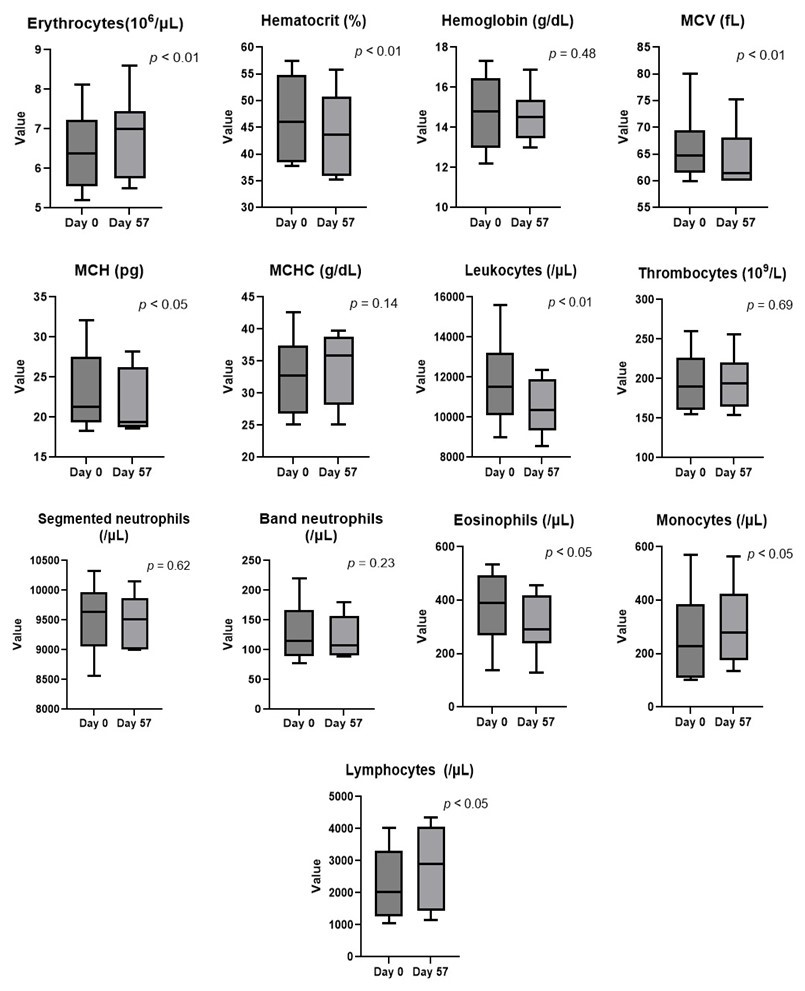Hematological and biochemical variations in dogs with osteoarticular pain undergoing treatment with meloxicam and cannabidiol
Authors: Yadhira C. Saavedra, Raquel R. Reyes, Roy M. Macedo and Juan R. Paredes-Valderrama
Ger. J. Vet. Res
2025.
vol. 5, Iss. 1
pp:53-61
Doi: https://doi.org/10.51585/gjvr.2025.1.0119

Abstract:
Osteoarticular diseases in dogs are a significant source of chronic pain, adversely affecting their quality of life. Traditional treatment often relies on nonsteroidal anti-inflammatory drugs (NSAIDs), which can lead to undesirable side effects. Conversely, cannabidiol (CBD) is increasingly being explored for managing osteoarticular pain across various animal species. However, there is limited research on the effects of these pharmacological compounds on the hematological and biochemical profiles of dogs with osteoarthritis. This study aimed to assess the hematological and biochemical variations in dogs experiencing osteoarticular pain while receiving therapeutic doses of meloxicam (MELX) and increasing doses of CBD over 8 weeks. A total of 16 dogs with osteoarticular pain were divided into two groups: MELX and CBD. The MELX group received meloxicam (0.2 mg/kg on day one, followed by 0.1 mg/kg daily thereafter), and the CBD group was administered 2 percent CBD cannabis oil, starting at 0.5 mg/5 kg in the first week and increasing by 0.5 mg/5 kg each subsequent week. Hematological and biochemical analyses were conducted on days 0 (baseline) and 57 (one day post-treatment). Significant changes were noted in erythrocyte counts, monocytes, lymphocytes, hematocrit, mean corpuscular volume (MCV), mean corpuscular hemoglobin (MCH), leukocytes, and eosinophils in the MELX group. In contrast, the CBD group exhibited significant changes only in MCV and leukocyte counts. Additionally, the MELX group showed alterations in alkaline phosphatase (ALP), urea, and creatinine levels, whereas the CBD group demonstrated a notable decrease in urea and ALP. Overall, the administration of increasing doses of CBD resulted in minimal changes to hematological parameters and did not indicate renal or hepatic toxicity, suggesting that CBD may serve as a viable alternative treatment for osteoarticular diseases in dogs.
Keywords:
Cannabis, Chronic pain, NSAIDs, Osteoarthritis, Osteopathology, Toxicity
Statistics:
Article Views: 627
PDF Download: 59